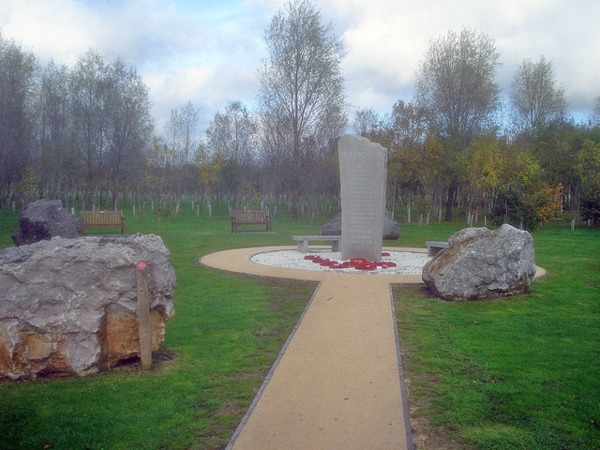
Easter week is a special time for me and for fellow Christians around the world. Last night, we remembered the death by crucifixion of Jesus of Nazareth. Tomorrow, we will celebrate his resurrection from the dead.
If you read my recent profile, you’ll remember this week also marks the 14th anniversary of the Good Friday Agreement that brought peace to the beleaguered people of Northern Ireland. I can think of no more fitting time on the Christian calendar for such an accord to take place. (For an easy and compelling account of the Agreement, read George Mitchell’s Making Peace.) However, during the course of my brief research on the Agreement, I was struck anew by the incongruence of Christians needing to reach a peace agreement with one other in the first place.
Modern history bears sad testament to internecine wars between Christians of different persuasions—among them the Thirty Years War and the English Civil War of the 17th century, the American Civil War of the 19th century, and the Rwandan Genocide and Serbo-Croatian War of the 1990s. How is it that Christians, whether Catholic, Protestant or Orthodox have found it possible to justify killing each other? How is it that Christians who make war seem better at creating masses of displaced, orphaned and widowed humanity than caring for them?
When did allegiance to the state become a higher priority for Christians than allegiance to Christ, who in his famous Sermon on the Mount commanded those who would follow him: “You have heard that it was said, ‘You shall love your neighbor and hate your enemy.’ But I say to you, love your enemies, bless those who curse you, do good to those who hate you, and pray for those who spitefully use you and persecute you…”?
To me, Northern Ireland illustrates how dangerous it is for us Christians when we relegate our faith in Christ to our private life, and segregate our faith from our public role in society. (Often when Christian faith intersects with say, U.S. politics, it makes a different sort of error, but that’s a topic for another commentary.) Catholic nationalists and Protestant unionists committed horrible atrocities against each other because they subordinated their religious heritage and practice to their political identity.
We’ve excused ourselves from following Jesus’ call to love our enemies—and I’m assuming “loving our enemies” precludes our killing them—because, we tell ourselves, that’s just unrealistic or idealistic or both. But that capitulation paradoxically makes our faith irrelevant to the real world. My friend Claude Nikondeha said of growing up during the conflict between Hutus and Tutsis in Burundi, “The challenging thing for me was that the world was falling apart all around us, the world as we knew it, but the church had absolutely nothing to say about it. And some of the people involved in collapsing the world were part of the church. I was confused along with quite a few people…”
Jesus’ message was not about abstract platitudes. He incarnated his alternative vision of reality by taking all the hatred, indifference, oppression and injustice of his betrayal, arrest, trial, beating and condemnation upon himself. As it is recorded in the Gospel according to Luke, in the midst of his execution he said, “Father forgive them for they do not know what they do.”
Jesus set aside his preeminent title and unique identity and converted the ideal of peace into a reality. He deconstructed himself. He bore the ultimate shame the most powerful empire in the world could mete out, he died and then he came out the other side, becoming for the world the firstfruit of a new life and a new reality that is amazingly accessible to us all. We need only to forgive those who crucify us.
I’m under no illusions about how very difficult it is to do that in practice. Yesterday, I cussed at an opponent on the pick-up basketball court for making a sarcastic comment about my play, and that’s nothing compared to the way many people on both sides of the conflict in Northern Ireland, for example, treated each other.
Thankfully, a courageous few have chosen a better way than war, revenge and hatred, as Betty Williams and Mairead Corrigan did in the 1970s and as John Hume and David Trimble did in the 1990s. In the words of Irish continental philosopher Richard Kearney, who, during the third session of the 2007 Emergent Village Theological-Philosophical Conversation, spoke at length of the connection between Christian faith, deconstruction and political affairs: “The hardest message in Christianity [is] the radical acceptance of the enemy. And there is an ‘elachiston,’ there is a ‘least of these’ in the enemy that…comes from suffering…And if you remain closed to what they’re coming from and don’t see that it’s coming from fear and suffering, then you’re not doing what Jesus would do…I was very struck [by] great political leaders who grew up with hatred, like for instance Mandela or John Hume in Northern Ireland…I saw [Hume] deconstruct himself and become a wreck actually, a nervous wreck. He’s now on medication and in the depths of depression. He won the Nobel Prize, which is a nice plaudit and well deserved, but his party has been deconstructed and he deconstructed himself.”
“But what he produced was peace interestingly enough on the Good Friday Agreement. Where, finally, after…500 years…a line was agreed that said, in the Good Friday Agreement between the British and Irish governments, agreed by the majority of the unionists and the nationalists on both islands, that you could be British or Irish or both. A very deconstructive thing. It doesn’t have to be either-or. You can be both British and Irish.”
“Well, you can’t. Because being Irish is having a united Ireland. Being British is having a United Kingdom. Two into one don’t go, since both claim constitutional rights over the same territory. So, logically speaking, it’s a contradiction in terms. You can’t be a unionist and a nationalist. But this phrase was saying ‘you can be the impossible.’ The impossible can become possible. You can be British or Irish or both.”
“John Hume shook hands with Gerry Adams…He was absolutely berated and castigated by the press on both islands as giving in to the terrorists, talking to the terrorists. Well, what do we have now? Peace. We have peace in Northern Ireland…And Ian Paisley, who is the unionist equivalent of Gerry Adams, now shaking hands and embracing each other. Because people like John Hume—I’m not saying he was the only one, there were the women who led the peace movement and so on—but John Hume did himself out of a job…He deconstructed himself so that there could be peace. And I think that’s…a huge lesson in terms of the deconstructive message—ceding place to ‘the Other.'”
That is a message we all need to hear, especially on this special weekend.


